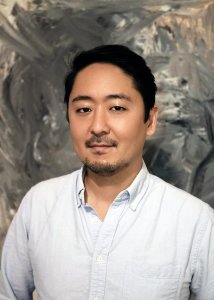Presented By: Nam Center for Korean Studies
Nam Center Colloquium Series | Machines of the Quotidian: Architecture and Technology in Postwar North Korea
Cheehyung Harrison Kim, Associate Professor of History, University of Hawai'i at Mānoa

Please note: This session is planned to be held both in-person and virtually EST through Zoom. This webinar is free and open to the public, but registration is required. Once you've registered, the joining information will be sent to your email.
Register at: https://myumi.ch/3kwz2
The rebirth of North Korea after the Korean War—centered on state authority and productive work culture—was distinctly represented by architecture and technology of the quotidian kind. Of particular importance were mass housing and everyday technologies, the two types of vernacular machines essential for organizing the people and raising their productivity. Apartments and tractors were celebrated as emblems of new socialist life. Concurrently, apartments and tractors were spectacles that dissimulated the global capitalist ideology of industrial efficiency. Machines are then parts of coordinated systems that organize life and support the expansion of state and industrial domination.
Cheehyung Harrison Kim is an associate professor in the Department of History at the University of Hawai‘i at Mānoa. His research and teaching focus on socialism, labor, industrialism, everyday life, and urbanism in the context of North Korea and East Asia. He is the author of Heroes and Toilers: Work as Life in Postwar North Korea, 1953-1961, published by Columbia University Press. He is also the editor of the journal Korean Studies.
The lecture is cosponsored by the University of Michigan Department of History.
If there is anything we can do to make this event accessible to you, please contact us. Please be aware that advance notice is necessary as some accommodations may require more time for the university to arrange.
Register at: https://myumi.ch/3kwz2
The rebirth of North Korea after the Korean War—centered on state authority and productive work culture—was distinctly represented by architecture and technology of the quotidian kind. Of particular importance were mass housing and everyday technologies, the two types of vernacular machines essential for organizing the people and raising their productivity. Apartments and tractors were celebrated as emblems of new socialist life. Concurrently, apartments and tractors were spectacles that dissimulated the global capitalist ideology of industrial efficiency. Machines are then parts of coordinated systems that organize life and support the expansion of state and industrial domination.
Cheehyung Harrison Kim is an associate professor in the Department of History at the University of Hawai‘i at Mānoa. His research and teaching focus on socialism, labor, industrialism, everyday life, and urbanism in the context of North Korea and East Asia. He is the author of Heroes and Toilers: Work as Life in Postwar North Korea, 1953-1961, published by Columbia University Press. He is also the editor of the journal Korean Studies.
The lecture is cosponsored by the University of Michigan Department of History.
If there is anything we can do to make this event accessible to you, please contact us. Please be aware that advance notice is necessary as some accommodations may require more time for the university to arrange.